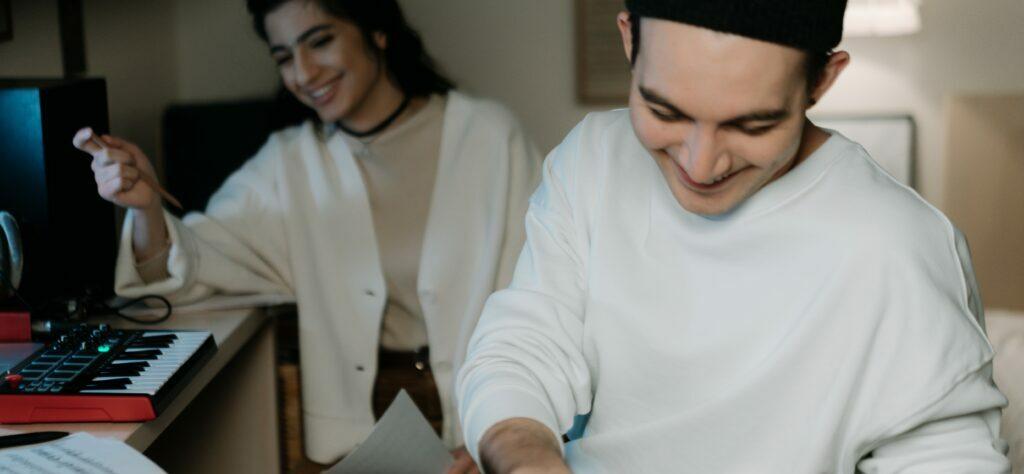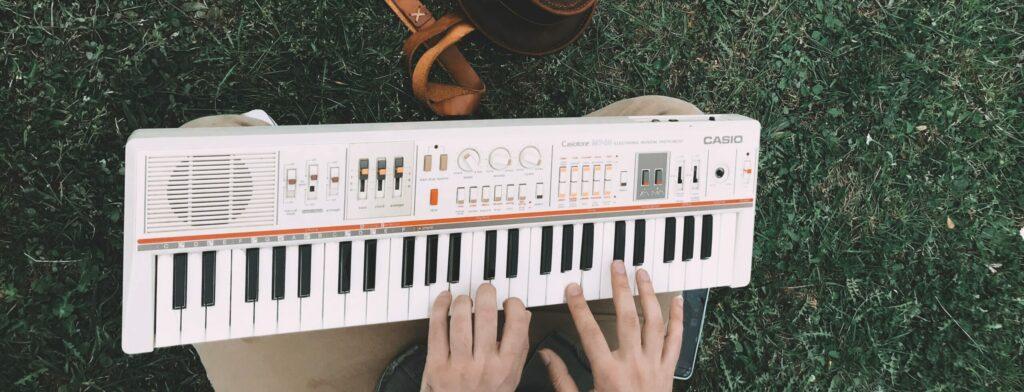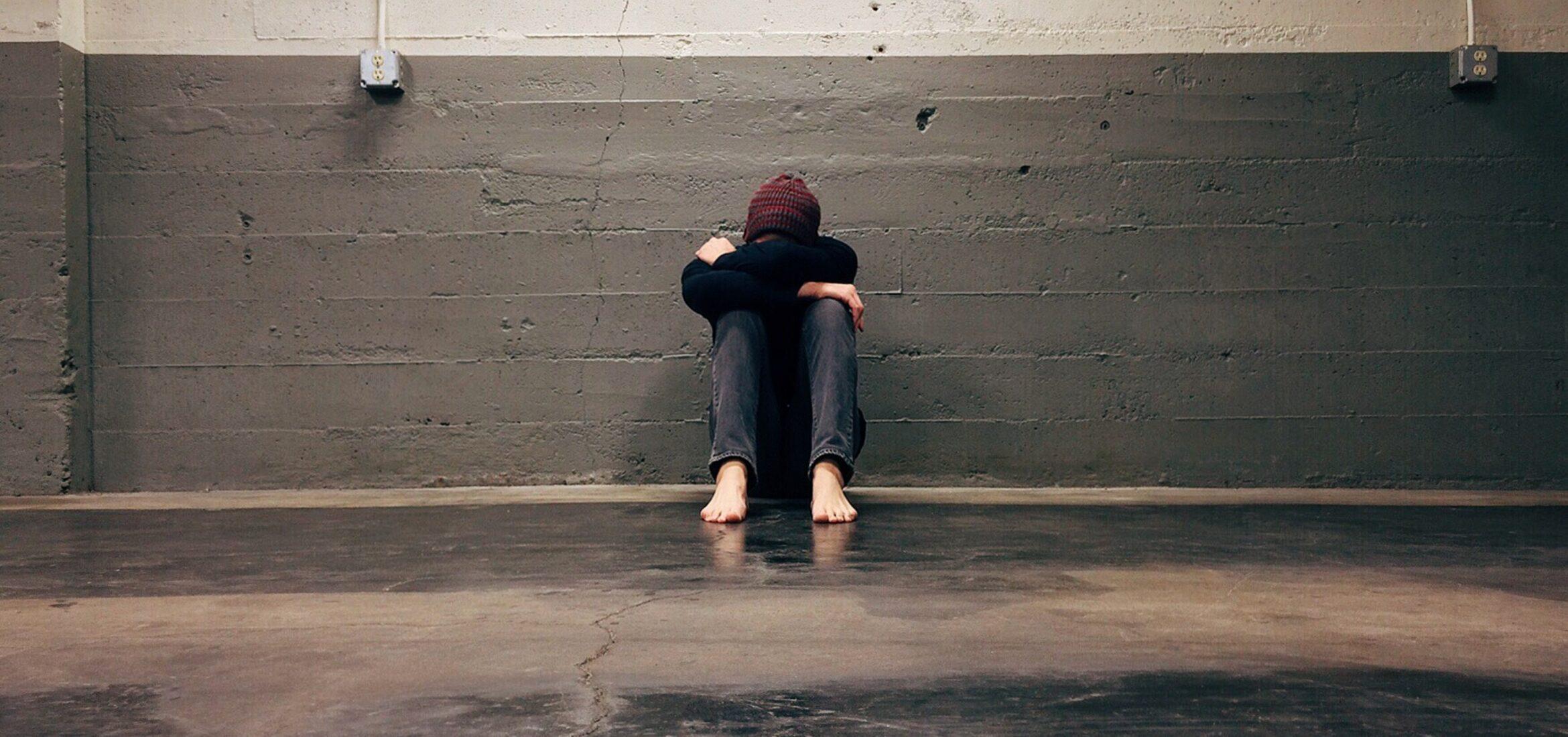We’ve all suffered from creative block at some point or another…sitting around for hours on end waiting for that creative spark or moment of inspiration to come to save us, but it never does. As hours, days, or even weeks pass, we become increasingly frustrated and start to lose all motivation.
You start to wonder how you were just recently able to produce a couple of tracks in a matter of hours and now it’s become a struggle to even get a 4 bar loop together. This is infamously known in the industry as creative block, or musician’s block. It’s also referred to in other creative fields as writer’s block and art block.
Table of Contents
- How Can we Overcome Creative Block?
- 1. Limit your Freedom
- 2. Play Around, Let Loose and Have Fun
- 3. Get Inspired
- 4. Collaborate & Beat Musician’s Block Together
- 5. Change of Scene
- 6. Learn, Learn & Learn
- Conclusion: How to Break out of Creative Block
How Can we Overcome Creative Block?
Musicians are inevitably going to have to come face to face with this phenomenon – it’s just part of the process. This doesn’t mean however that there aren’t ways to beat it. Of course, taking breaks, exercising, getting enough sleep, and staying healthy should all help. However, we presume you’re here because you already know that, and yet you’re still stuck in a creative rut. That’s why we’ve put together 6 effective methods for you to try.
1. Limit your Freedom
One method to reignite your creative flow is to limit your freedom. The limitless choices and infinite possibilities when creating a new project are both exhilarating and overwhelming. Once you do actually manage to produce something, the perfectionist within you will fine-tweak even the smallest of details. Before you know it, you have wasted another day scrolling through endless drum samples.

One way in which you can impose restrictions is to give yourself a time limit. For instance, you can tell yourself you have 15 minutes to produce a drum pattern, or 10 minutes to come up with a chord progression. By sticking to a deadline, you force yourself to create, and not agonise over the infinite choices. Introducing deadlines is also an incredibly effective strategy in the context of announcing release dates to your friends, family, or followers. This simple psychological tactic will ensure that you get the job done, in fear of not following through on your promise.
Another strategy to limit your freedom is to use fewer tools. Less is more, as they say. This is particularly the case for music producers, who have a never-ending selection of audio plugins, synths, instruments, MIDI controllers, apps, and effects at their disposal. Endlessly stressing over whether to go for a Minimoog or Rhodes for your chords will cripple your productivity. You should instead try to reduce your creative options by, for instance, forcing yourself to complete a song using just one synth.
2. Play Around, Let Loose and Have Fun
Another common symptom of creative block is that creating music can begin to feel like work, rather than a stimulating process of experimentation and creative expression. Unsurprisingly, this sucks the fun out of it and stifles creativity. Equally, artists can reach a certain point where they’ve run out of ideas, and find themselves following the same routine and creating the same sound over and over again. A perfect solution to this is to switch things up, experiment, and ultimately, have fun.
To switch things up you should analyse your workflow and try to flip your creative routine by doing the exact opposite of what you normally do. For instance, if you usually start a song with your drums, then begin a track with some chords. Equally, if you typically use a particular kick, try to use an entirely new one. You can even try to use samples typically pertaining to other genres. Additionally, try producing other sub-genres, or entirely new genres.
Ultimately, creating music should be fun. If it starts becoming a chore, then it might be time to let loose and experiment. You could for example open a synth, play around, and try to create a completely fresh sound. It may not sound perfect and you may not even use it in any of your songs, but it could still inspire new ideas and rekindle your love for music and creativity. Equally, you could try to break some music theory rules, head out with a portable recording device to record and use real-world sounds, or try out some new singing styles and techniques.
3. Get Inspired
One of the best ways to find new sources of inspiration is to listen to new music. Listen to both music you love, as well as music from various other genres that you’re not typically familiar with. Broadening your music palette is particularly useful since it’ll expose you to new techniques, time signatures, instruments, musical patterns, chord progressions, or melodies. Even if you’re not a fan of a particular genre, there will still be elements within songs that you’ll be able to borrow and apply to your music.
You can even take it a step further and use a song you love as a reference track. For instance, you can drag a song into your DAW and deconstruct it bar by bar. If you don’t know your way around a DAW then you can also analyse a song just by listening to it, as well as emulating parts of the track.
One effective way to get inspired is to go to live concerts, or even to a local gig. Equally, if you’d rather stay at home, there’s an endless amount of inspiration at your disposal on the internet. It’s also often completely free, from tutorials on Youtube to Instagram Lives of your favourite artists. Digital streaming within the music industry has become easier than ever since the pandemic, meaning you can soak up plenty of inspiration without even having to leave the house. You can even look for inspiration from your very own tracks. Revisit your old demos and see whether you can build upon an unfinished project or idea.
4. Collaborate & Beat Musician’s Block Together
If you’re still feeling stuck, it might be worth giving collaboration a go. Sometimes bringing in a new perspective on your music and workflow is all you need. Additionally, if one of you is stuck on an idea, the other person can jump in and help out, and vice versa. By collaborating, you essentially get to help each other beat creative block and ultimately feed off each other’s creativity.

Whether you’re simply asking for advice on a track from a fellow artist or whether you’re taking it a step further and collaborating on a song together, there’s a lot to gain from such partnerships. These collaborations could be with a vocalist, drummer, producer, or even spoken word artist. The list is endless, and it’s completely up to you. You could even offer to remix someone’s track or get them to remix one of yours. Also, if you typically collaborate with musicians who play your kind of music, why not mix it up and work with artists from entirely different genres. Take, for example, Rihanna, Kanye West and Paul McCartney, who once collaborated together on the track “FourFiveSeconds”, to everyone’s surprise.
5. Change of Scene
A change of scene can be an incredibly effective way to break out of a creative rut. Whilst a daily routine can help keep creatives focused, creating music every day in the exact same environment will eventually stifle one’s creativity. Artists will naturally end up going through the exact same creative process and enter autopilot mode. Sometimes, switching up your setting, whether that’s heading to another artist’s studio or going to a café to produce music, can be just what you need.
As well as in a literal sense, a change of scene metaphorically is also incredibly useful. That is to say, get out of your comfort zone. For instance, if you are a guitarist then have a go at music production, or even just simply switch to bass guitar. Likewise, if you’re a music producer, try playing with a bit of hardware or an instrument you’re not too familiar with.
6. Learn, Learn & Learn
Take a break from writing and producing, and get learning. Whether you’re a beginner or a seasoned musician, you will undoubtedly benefit from learning. For instance, learning some music theory will be very helpful once you do finally get that creative spark back. It could even encourage you to create some new music there and then. An example could be spending an afternoon or two learning about new and intriguing melodies and harmonies.

Equally, learning new techniques will help you perfect your craft, build your confidence and ultimately inspire you. For instance, learn how to use parametric equalization or get to know bus compression. You will then be able to apply this technical knowledge to your tracks for a more professional touch. As mentioned before, you can also get out of your comfort zone by learning to play a new instrument. This will not only reignite your creativity but will make you a more versatile and complete musician.
Conclusion: How to Break out of Creative Block
Unfortunately, there are no instant or easy cures for creative block. That said, having a go at these methods will certainly do you some good creatively. You might find some are more effective than others for your particular case so try them all if you can.
One of the major causes of musician’s block is that we often chase perfectionism, which almost always leads to some sort of creative rut. Although it’s certainly easier said than done, try cutting out perfectionism completely. Focus on progress, not perfection. Don’t think, just do.
About the Author

Joe Curtis
Digital Marketer and Content WriterJoe Curtis is a passioned Digital Marketer from the UK. In his time on MasteringBOX he has created amazing content about Audio and Music Production.
Leave a comment
Log in to comment


